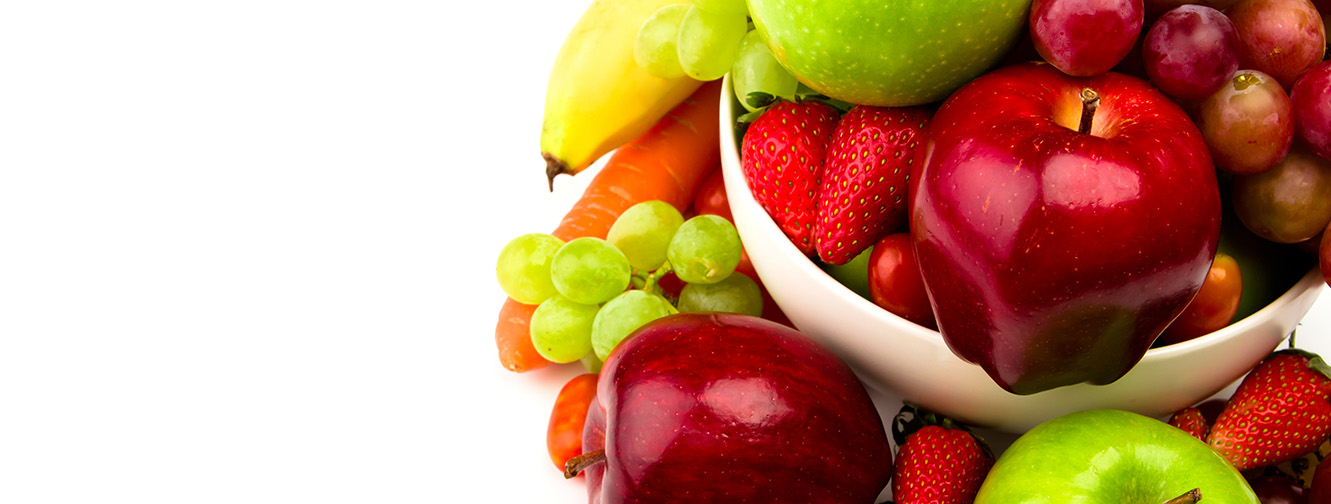Nutrition tips
70 Questions about Children's Nutrition

1. What are the basic foods that a child needs for healthy growth?Children need a variety of foods that include proteins (such as meat and eggs), carbohydrates (such as wholemeal bread), healthy fats (such as vegetable oils), vitamins (such as vitamins A and C), and minerals (such as iron and calcium).
2. What is the best healthy breakfast for children?
It is preferable to provide a breakfast that contains protein such as eggs or yogurt, with fresh fruit and whole grains such as oats, which gives the child energy throughout the day.
3. How many meals does a child need per day?
Children usually need 3 main meals and 2-3 snacks to meet their nutritional needs throughout the day.
4. Is sugar harmful to children?
Yes, it is preferable to limit the intake of added sugars in children's food because they can cause weight gain and tooth decay and negatively affect the child's behavior.
5. Can children eat chocolate daily?
Chocolate can be eaten in moderate amounts; it is preferable to choose dark types that are low in sugar and serve them in limited quantities.
6. What is the importance of dietary fiber for children?
Fiber helps improve digestion, prevents constipation, and contributes to a feeling of fullness, which supports a healthy weight.
7. Can children eat fast food?
It can be eaten in moderation, with a preference for preparing healthy versions at home that contain natural ingredients.
8. The appropriate amount of water for children per day?
It varies according to age and activity, but the average for young children is about 5-8 cups per day.
9. What are the best types of milk for children?
Low-fat natural milk is suitable for children after the age of two, while breast milk or formula milk is recommended for infants until the age of one year.
10. Do children need nutritional supplements?
This depends on their diet, if they do not get all the nutrients from their food, it is advisable to consult a doctor.
11. What are the most important vitamins for children's growth?
Vitamin D for bones, vitamin C for immunity, vitamin B12 for energy, and vitamin A for healthy skin and vision.
12. Why does a child need iron?
Iron is essential for the formation of hemoglobin, which carries oxygen in the blood, and prevents anemia that may affect a child's growth and activity.
13. What are the sources of vitamin D for children?
Sunlight is the main source, and it is also found in foods such as fish, fortified milk, and egg yolks.
14. Should children be given calcium supplements?
Children usually get calcium from milk and dairy products, but if they do not get enough, they may need supplements under the supervision of a doctor.
15. Is it recommended to give multivitamins to children?
It may be recommended if the child suffers from a deficiency in some vitamins, and this should be based on the doctor’s advice.
16. When should a child start eating solid foods?
It is recommended to start introducing solid foods when the child reaches 6 months, after consulting a doctor.
17. What is the first food to be introduced to an infant?
You can start with mashed vegetables and fruits, or iron-fortified cereals.
18. The amount of milk that an infant needs daily?
It varies according to age, but it ranges from 500 to 700 milliliters, and can be reduced with the gradual introduction of solid foods.
19. Can honey be given to children?
No, honey should be avoided for children under the age of one year due to the risk of food poisoning.
20. Can an infant be given water?
Not before 6 months of age, and then small amounts can be introduced.
21. What foods may cause allergies in children?
Eggs, milk, peanuts, nuts, wheat, fish, and some fruits and vegetables.
22. How do I detect my child's food allergy?
Introduce new foods gradually and monitor any unusual symptoms, such as a rash or swelling.
23.Can food allergies be avoided in children?
It cannot be completely avoided, but it is recommended to introduce allergenic foods slowly and follow the doctor's instructions.
24. What are the symptoms of food allergies?
Rash, swelling, shortness of breath, stomach pain, or an overreaction.
25.Can a child recover from a food allergy?
Yes, some children overcome allergies over time, especially allergies to milk and eggs.
26.How do I deal with a child's lack of appetite?
Offer small and varied meals, create a fun environment for eating and avoid compulsion.
27.What is the solution for constipation in children?
Increase fiber and water intake, encourage physical activity, and choose fruits such as apples and pears.
28. What are the common causes of obesity in children?
Eating unhealthy foods, lack of physical activity, and increased consumption of sugars and soft drinks.
29. How do I make sure my child is getting adequate nutrition?
The child's growth should be monitored and a doctor should be consulted, and the food in his diet should be varied.
30. How do I deal with food pickiness in children?
Present foods in a fun and orderly manner, and repeat the introduction of new foods without forcing the child to eat them.
31. Does nutrition affect the child's school performance?
Yes, good nutrition improves concentration and attention and helps the child achieve better academic performance.
32. What is the relationship between nutrition and dental health?
Sugary foods can cause tooth decay, while foods rich in calcium and phosphorus help strengthen and protect teeth.
33. Can nutrition affect a child's behavior?
Yes, a deficiency in some nutrients such as iron and omega-3 can lead to behavioral disorders such as irritability and lack of concentration.
34. What foods boost a child's immunity?
Fruits rich in vitamin C such as oranges and strawberries, in addition to garlic and honey, can boost a child's immunity.
35. What is the relationship between processed foods and children's health?
Processed foods contain preservatives, sugars, and unhealthy fats, which negatively affect children's overall health.
36. Does protein intake affect children's heart health?
Moderate amounts of protein support heart health, but proteins rich in saturated fats (such as red meat) should be eaten in moderation.
37. What foods help improve children's vision?
Carrots, sweet potatoes, spinach, and broccoli contain vitamin A and antioxidants that support eye health.
38. Do soft drinks affect children's health?
Yes, soft drinks contain high amounts of sugar and acids that lead to tooth decay and weight gain.
39. What is the importance of eating fish for children?
Fish such as salmon are rich in omega-3, which enhances brain health and supports concentration.
40. Does eating fast food affect children's mental health?
Eating fast food frequently can lead to mood swings and increase the likelihood of anxiety and depression due to a lack of healthy nutrients.
41. What is the ideal lunch for children at school?
A meal that includes protein such as chicken or tuna, a piece of fruit, vegetables, and a healthy snack such as milk or nuts.
42. Is it preferable to include sweets in the school meal?
It is preferable to provide a nutritious snack instead of sweets, such as fruits or low-sugar yogurt.
43. How can children be encouraged to eat healthy food at school?
You can use colorful and attractive lunch boxes, present foods in a fun way, and encourage children to choose foods they like.
44. What are the healthy snacks that can be sent with the child to school?
Dried fruits, yogurt, baby carrots, nuts, or fruit slices.
45. Is it okay for kids to drink canned juices at school?
It is best to avoid canned juices because they contain large amounts of sugar, and choose natural juice or water instead.
46. What is the best after-school snack?
A protein-rich snack such as yogurt or curd with fruit or a handful of nuts.
47. Are French fries a good snack?
It is better to serve baked potatoes instead of fried ones to reduce the amount of unhealthy fats.
48. What are high-fiber snacks for kids?
Fresh fruits such as apples, berries, and vegetables such as carrots and cucumbers, with whole grains.
49. Can popcorn be served as a snack?
Yes, low-oil and low-salt popcorn is a healthy and high-fiber option.
50. How much walnuts or almonds is a good snack for kids?
About a small handful, or 10-12 nuts, as eating moderate amounts provides nutrients without excess calories.
51. How can a child gain weight in a healthy way?
Provide meals rich in protein and healthy fats such as avocado, in addition to starchy foods such as potatoes.
52. What foods help thin children gain weight?
Eggs, full-fat dairy products, peanut butter, and sweet potatoes.
53.How can children maintain a healthy weight?
By eating balanced meals and staying away from sugars and fast food, while exercising regularly
54. Can poor nutrition lead to obesity in children?
Yes, eating a lot of unhealthy foods with a lack of physical activity can lead to weight gain and obesity.
55. What is the best meal schedule for overweight children?
A schedule that includes small, frequent meals that include proteins, vegetables, and fruits, and reduces sugars and saturated fats.
56. How many hours should there be between meals for children?
It is preferable to have 3-4 hours between main meals, and 1-2 hours between snacks.
57. What is the best time for dinner for children?
Around 6-7 pm, so that they have enough time to digest food before bed.
58. Should the child be forced to eat at a specific time?
No, the child's appetite should be respected and food should be presented in encouraging ways without coercion.
59. What is the importance of organizing meal times for children?
Organizing meal times helps stabilize energy levels and facilitate digestion and absorption.
60. Does eating in front of the TV affect children's appetite?
Yes, eating in front of the TV may make the child consume larger amounts of food unconsciously.
61. What is the importance of proteins for children's growth?
Proteins help build muscle, grow tissue, and develop the immune system.
62. What are the best sources of protein for children?
Eggs, chicken, beef, lentils, beans, and yogurt.
63. How much protein does a child need daily?
It varies according to age and weight, but the average for children is between 19-34 grams per day.
64. What is the importance of starches for children?
Starches provide the energy needed for physical and mental activity, and are a major source of calories.
65. What are the healthy starches suitable for children?
Brown rice, whole grain bread, potatoes, and oats.
66. What is the safe limit for daily sugar intake for children?
It is recommended that children should not exceed 25 grams per day, and it is preferable to reduce added sugars as much as possible.
67. What are healthy fats for children?
Healthy fats include omega-3 found in fish, vegetable fats such as olive oil and avocado.
68. Should hydrogenated oils be avoided?
Yes, hydrogenated oils contain unhealthy fats that increase the risk of heart disease.
69. Can children eat fried foods?
Fried foods can be eaten in moderation, and it is preferable to use vegetable oil in small quantities.
70. What foods contain hidden sugars that should be avoided?
Canned sauces, canned juices, sweetened yogurt, and canned breakfast foods.












